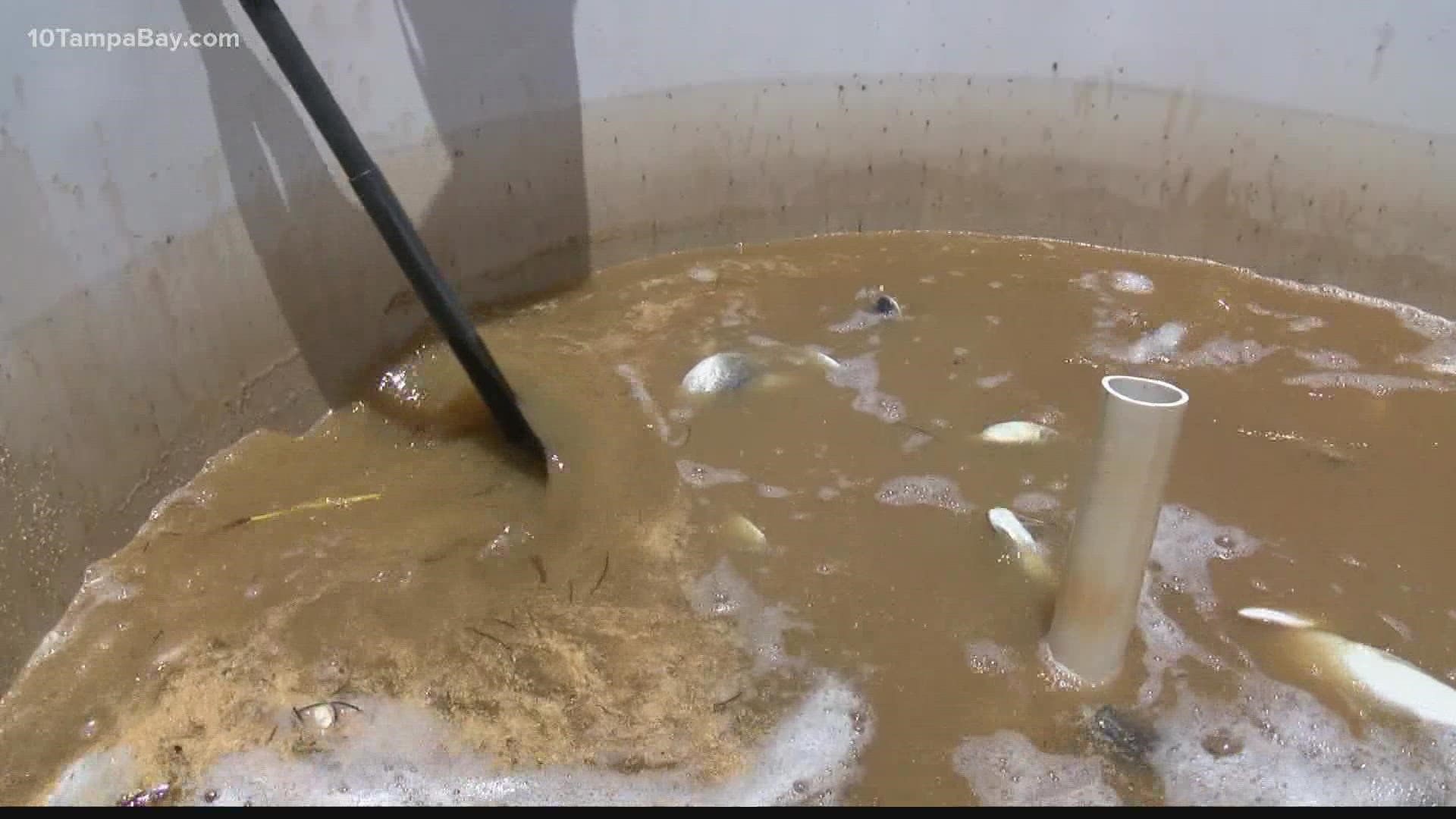PINELLAS COUNTY, Fla. — Tons of dead sea life washed onshore due to red tide in Pinellas County and surrounding areas. Southwest Florida scientists are researching how to mitigate red tide. One study uses dead sea life for other purposes, like fertilizer.
Scientists at Florida Gulf Coast University's Water School have partnered with Mote Marine Laboratory scientists researching ways to mitigate red tide blooms using state funding.
One study takes dead sea life from red tide blooms and observes the animals as they decompose. This study focuses on finding out if the dead fish can be used as a non-toxic fertilizer. “We’re testing to see if we can compost these fish a make a fertilizer out of them,” a Mote Marine Laboratory Scientist, Cynthia Heil said.
Heil explained sea life that died from red tide contributes to the bloom by fueling nutrients in the water.
“They fuel the bloom. If they are not removed, they decay and produce nutrients," Heil explained.
That's why scientists at FGCU said it can be beneficial to remove the fish from the water, instead of waiting for them to wash onshore. “There’s all these dead fish in the water and they’re releasing nutrients as they decompose, so potentially remove the fish, there would be less nutrients available for to feed the bloom," FGCU Scientist, Adam Catasus explained.
Scientists are looking at ways municipalities can remove the fish at a low cost. After the dead fish are removed from the water, scientists are researching how they can be reused. “We’re looking at ways we can make dead fish useful," Heil explained.
For example, Pinellas County officials take the dead sea life from red tide to an incinerator to be disposed of. “Instead of incinerating them or putting them in a dump, can we find a useful product from these fish?" Heil questioned. Scientists hope these projects will give them a clear answer to that.
The goal would be to create a non-toxic fertilizer. “These fish were killed by toxins, so they’re creating toxins. We’re looking at how fast those toxins decay when we compost them," Heil explained.
In Lee County, FGCU Water School scientists have bins where they are observing that. Researchers said the project should wrap up in the fall.
Scientists said if they are able to find a way to create a nontoxic fertilizer, there is a golf course in Longboat Key willing to test it out.

